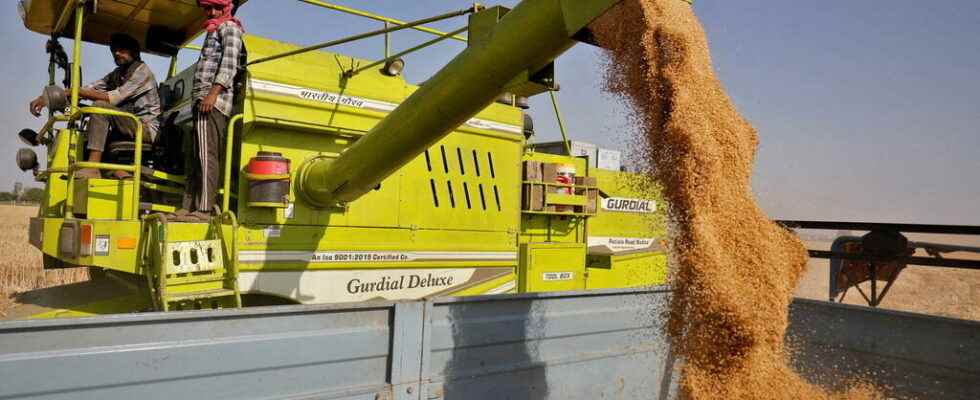On the markets, the price of wheat soared again after India announced an embargo on its exports. The World Bank says it is ready to release twelve billion dollars to deal with the serious food crisis that is looming.
The war in Ukraine brings closer every day a world shortage of the cereal. The country accounted for 12-13% of the world’s total wheat export. However, the prospects are not good. According to the latest monthly report from the US Department of Agriculture, Ukrainian production will be cut by a third by 2022.
This drop cannot be compensated, because a severe drought is raging in several major producing countries. France, a major exporter of soft wheat, has thus revised its yield forecasts for the next harvest downwards. This fall in world production causes a drop in world stocks and revives the specter of famine in poor countries.
This is the reason why India has just suspended its exports. “ Summer has arrived much earlier than expected, causing winter wheat harvests to drop by around 10 million tonnes compared to last year says Pronab Sen, former Chief Statistician of India and Country Director of the India Program at the International Growth Center.
Pronab Sen: “an embargo for food security as well as that of the government” – Jelena Tomic
INDIA SON Pronab Sen explains the embargo on the export of wheat
Serious risks of food insecurity
Last year, nearly 200 million people in 53 countries around the world were in a situation of food insecurity. A figure that should increase significantly this year with the rise in cereal and fertilizer prices.
It is with this risk in mind that the World Bank, following the IMF and international development agencies, is reorienting its priorities towards food security. The World Bank wants to put twelve billion dollars on the table in the next fifteen months. The resources will go in priority and in majority to the countries of Africa, the Middle East, Eastern Europe, Central and South Asia, the most threatened.
For the UN Agency, it is a question of helping the farmers of the countries concerned to work, that is to say to buy fertilizers and seeds, as well as to increase the cultivated areas to compensate for the absence of Russian, Ukrainian and Indian cereals. The Bank is also encouraging countries to eliminate unnecessary stockpiling and increase global food trade.
► Also to listen: Chronicle of raw materials – Wheat exports: India’s false leap drives up prices
